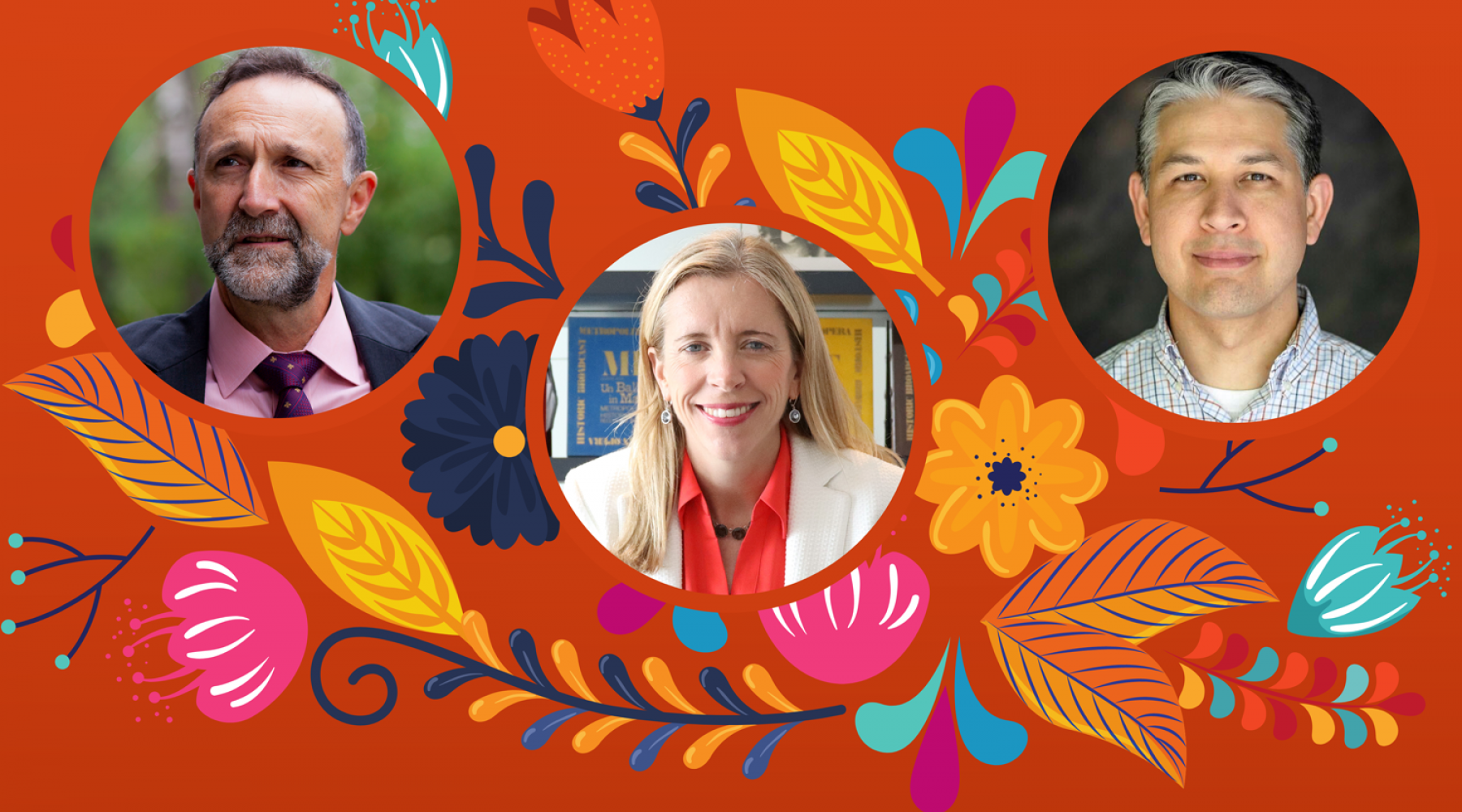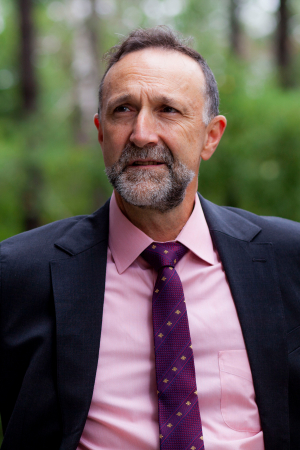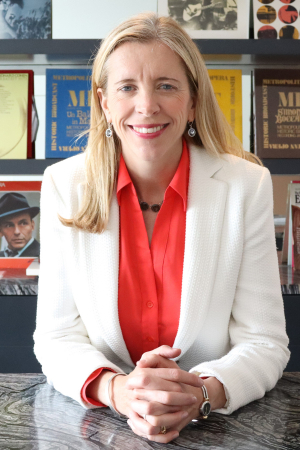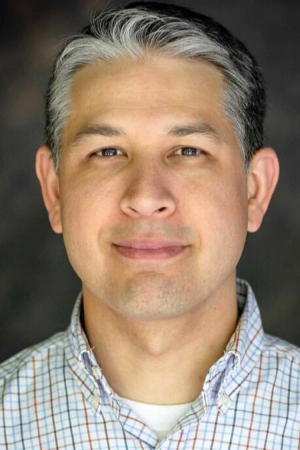
Members of the Tuck community reflect on their goals, accomplishments, inspirations, and passions in honor of Hispanic and Latinx Heritage Month.

My wife and I live in rural Vermont. We love to do trail work, gardening, and beekeeping on our land when we aren’t bicycling or hiking. We also love the southwestern U.S. and enjoy actively exploring desert landscapes.
Thich Nhat Hahn. He died recently but he is a beacon of hope and peace for the many people he has touched. His book Peace is Every Step is a must-read.
My wife and I spent over four months hitchhiking through Europe in 1987. We traveled close to 10,000 miles. We had very little money so those miles were all by thumb and we mostly slept in our two-person backpacking tent.
José Alvarez, of East Corinth, Vermont, is a clinical professor of business administration at the Tuck School of Business at Dartmouth. He is also a visiting senior lecturer at Harvard Business School, where he has served on the faculty since 2009. He conducts research and teaches courses in food systems, board governance, and retailing.
Prior to his academic career, Jose spent nearly 20 years in the supermarket industry, culminating in his tenure as president and chief executive officer of Stop & Shop/Giant-Landover. José currently serves on the board of directors for United Rentals, where he is the chair of the Nominating and Governance Committee; the TJX Companies; and Munoz Group. He is also a Charter Trustee at Princeton University, the chair of the board of the Joyce Foundation, lead director of Empower Schools, a director of the Good Jobs Institute, and a director of Daily Table.
He holds an MBA from the University of Chicago and a bachelor’s degree from Princeton.

Back in 2016, after more than two decades in a corporate career, I burned out. I had worked too hard to be a full-time professional and a full-time mother, following messages I received from my culture that motherhood could not be delegated. With no extended family in the U.S., with two young kids fifteen months apart in age, and with work responsibilities that extended throughout the U.S. and Mexico, I collapsed from physical and mental exhaustion.
I took six months off work to rebalance myself and attended an event at the Hispanic Chamber of Commerce of NJ. This was my first time being fully immersed in the Latino community as, so far, I’d always been one of the only Latinas in the room.
I was invited to relaunch and expand entrepreneurial platforms and incubators, and in this process of working closely with the community, I observed that those patterns of behavior and thinking that led to my burnout, working too much for less money, and feeling guilty about placing my needs and goals first, were happening across the board.
This was major. What everyone thinks happens just to them, is indeed cultural, but we don’t talk about it. We do not share our struggles, nor what worked to create our successes, and this holds us back individually and collectively, particularly because a large portion of the Latino community is composed of individuals who are firsts in their families to college and to their professions, and they lack an inter-generational roadmap to success.
I started to research the topic, created workshops to help my community with mindset and skillset, published my book Uncolonized Latinas, and launched the Rising Together movement. The rest of the story is being written as we speak! The book won 12 international awards, sold more than 2,000 in nine months, and I have spoken about the topic to a total of 3,000 people since the book was published.
I met two Popes in person. I used to sing in a choir and went on a tour through Argentina, Spain, and Italy. I am an avid snowboarder and an advanced taekwondo student.
On a more personal note, very few people know how hard it was for me to be where I am right now. I was born in a rural town in Argentina, in a hard-working, middle-class family with limited resources to pay for my education. My father started to work at eleven and could not attend high school. On the other end, I obtained two college degrees and an MBA from an Ivy League school. How did that generational jump and mobility into new spaces take place? Through hard work, focus, discipline, and sometimes, tears.
I did not have a choice but to make it work. There was not an option for me to lay back and relax, ever, that I remember. I had to work very hard to get into the spaces I got into, and to prove that I deserved to be there. I was walking through a one-way narrow tunnel and had no option but to keep going.
My success has brought my parents many blessings and has allowed me to financially support them, which is an expectation in our culture for those of us that achieve mobility into higher socio-economic spaces.
The process repeated itself a few times: when I moved to the US, and most recently when I opened my own business. If you want to succeed, there is no shortcut, you must put in the work, no matter what social media makes us believe.
I have a different view of DEI than others, I believe. In my view, DEI fails to create strategies and solutions with a longer-term view, as there are two areas that have fallen through the cracks, given the intense focus there is right now on talent attraction and retention.
There is much work to be done.
Success is the freedom to choose what you want to do, what to work on, who to work with and to bring to the world a product or service that will change the lives of many, creating a collective impact.
In 20 years the so-called minorities will be the majority, and most of those future leaders are now struggling as young talent as they lack a roadmap for professional success, given that they are the first-gen into college and into their professions.
The opportunity to work together across races, ages, and ethnicities starts now and cannot be minimized. We all need each other, and allyship and mentorship will be critical if we aspire to continue to be the amazing country that we are.
Valeria Aloe is a speaker, the award-winning author of Uncolonized Latinas: Transforming Our Mindsets And Rising Together, and the founder of the Rising Together Movement.
The first in her family to attend college and access professional spaces in her native Argentina and in the U.S., Valeria worked in brand management, business development, and finance at Fortune 500 companies across seven countries for more than 20 years.
She founded the Rising Together Movement to drive economic inclusion and to help close the Latino leadership and wealth gaps. Through professional and personal development programs, her work equips Latinas who are the firsts in their families into their spaces, with the necessary mindset, skillset, and community to thrive, and their allies with the tools to become more assertive leaders and mentors of diverse talent.

After seeing the destructive nature of war in Sierra Leone and learning of its many causes, I began to consider what role and responsibility business had in improving outcomes for countries like this. This led me to see the importance of exposing business leaders to resource-constrained countries so they can understand the possible role they can play both personally and professionally.
The first place I actively did this was for a renewable energy social enterprise, which had me based both in the UK and later Kenya. It was for this business-minded organization that I was able to expose business leaders, government heads, and royalty to the positive impact of sustainably financed renewable energy system allocation in rural areas. This part of my past is one reason why Tuck’s mission (to develop wise, decisive leaders who better the world through business) resonates so strongly with me.
Three things:
The defining issues of the next 20 years will be our response to climate change and how we adapt to its impact, and how we create a more equitable world for women globally.
Miguel joined Tuck in 2014 and works as the Associate Director for Business Leadership Programs in the Tuck Executive Education office, overseeing open enrollment and custom programming. Previously, he worked at the TuckGO office for seven years, starting as a Program Manager, then as an Associate Director for Logistics and Operations, and later as Associate Director for Business Development. Beyond his expertise in client development and consulting project management, he has experience in project management design and implementation, and global safety and security. He also regularly assists Tuck’s DEI office.
Many Voices, One Tuck (MVOT) celebrates the stories of our vibrant and diverse community. What’s your story? Email DEI at Tuck if you’d like to contribute to the MVOT project.
Note: MVOT is open to members of the Tuck community, including students, alumni, faculty, staff, TEE and Tuck Bridge participants, and MHCDS graduates.